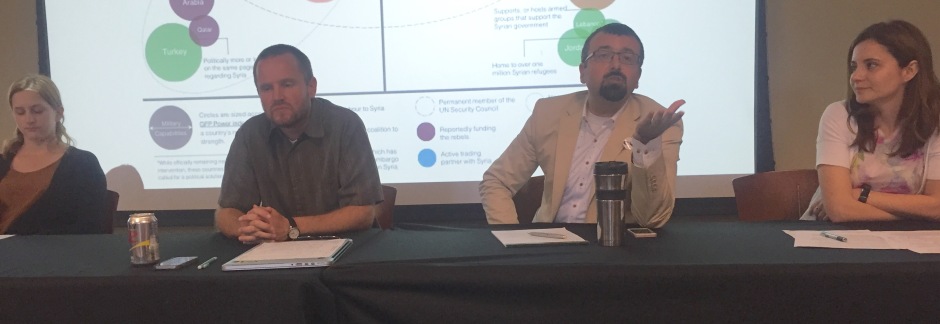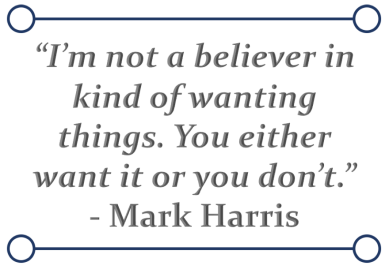by Mariah Posey | April 28, 2017

Graphic by Elon University.
With President Donald Trump’s first 100 days coming to a close, North Carolina support for the president and his administration has seen a considerable decline according to a recent Elon Poll conducted April 18-21. By conducting a live-caller, dual frame survey of 506 registered North Carolina voters, the poll found that 51 percent of people disapprove of the president’s current handling of his presidency despite 56 percent believing his actions match up with his campaign promises.
42 percent approve of Trump’s handling of the presidency and seven percent remain in the middle ground. Despite initial widespread usNorth Carolina support during the election period, now 49 percent say Trump is doing “a worse job as president than President Obama.”
Jason Husser, director of Elon Poll, said that although presidents usually experience strong support during the beginning of their terms, Trump’s presidency is different. He added that the level of support Trump has seen in his first 100 days both for himself and in his key policies is “as low as we’ve seen in the history of opinion polling.”
“Trump’s difficulty in presidential approval likely comes from two sources: his rhetorical and policy decisions, which he has control over, and a divisive polarized and dysfunctional political environment that makes it hard for any incoming president to function,” Husser said.
Emily Mitch, assistant director of fraternity and sorority life at Elon University, said that she’s not surprised by the decline in support based on the president’s inability to follow through on his promises.
“As someone who works in education, that’s where I tend to gravitate more to education myself about what’s been going on in that sphere,” Mitch said. “I think some of the work with Betsy Devos and that department is particularly disappointing to me, like the student loan stuff that’s been going on. I’m not wishing that things would happen particularly, but wishing that things that have happened did not happen.”
Like Mitch, senior Darius Moore also sees disparity in the Trump administration’s handling of education policies as well as other huge issues his team has promised to tackle.
“There’s been a lot of lack of attention to detail and a lot of big ideas about what he and his team want to change in regard to the Affordable Care Act, yesterday net neutrality, the public education system,” Moore said. “There’s a lot of big ideas thrown out but no sort of plan of action. I think people have very little trust in him because it’s a lot of talk right now. In these past 100 days, it’s been a lot of impulsive, ‘I just want to get a rise out of people and see what happens,’ instead of letting things pan out slowly and see what happens.”
Sheyenne Michelizzi, program assistant at the Provost Office, said that although she has never been favorable of the president, she is more devastated than before he took office and can’t tell whether he has a strong stance either for or against any particular issue.
“What I would like to see from him is more humility and any kind of thought towards the greater good of the citizens,” Michelizzi said.



 “My family and I were actually glued to the TV,” said Haya Ajjan, associate professor of management information systems, speaking of when news broke last Thursday night. Just two days before on Tuesday, news coverage focused on the chemical weapons attack in Syria that killed more than 100 people. Many blamed President Bashar al-Assad and his government, considering it a war crime against his own people.
“My family and I were actually glued to the TV,” said Haya Ajjan, associate professor of management information systems, speaking of when news broke last Thursday night. Just two days before on Tuesday, news coverage focused on the chemical weapons attack in Syria that killed more than 100 people. Many blamed President Bashar al-Assad and his government, considering it a war crime against his own people.


 “It didn’t take me til’ recently to figure things out, like eight months ago, when I really started to conduct my own studies and research what workouts work best, what benefits what muscle groups and whatever,” he said. “That’s when I really started to crack it down. I guess from failure, from trying this workout and that workout, that’s what kept me going.”
“It didn’t take me til’ recently to figure things out, like eight months ago, when I really started to conduct my own studies and research what workouts work best, what benefits what muscle groups and whatever,” he said. “That’s when I really started to crack it down. I guess from failure, from trying this workout and that workout, that’s what kept me going.”
 One supporter left a comment saying:
One supporter left a comment saying: